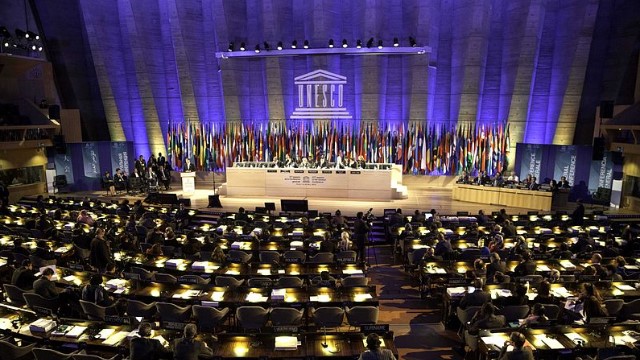 WIKIMEDIA, CANCILLERIA ECUADORThe United States has announced its intention to withdraw from the United Nations Educational, Scientific and Cultural Organization (UNESCO). According to the State Department, following the withdrawal, effective on December 31, 2018, the U.S. will take on a role as an “observer state” to provide expertise as a non-member.
WIKIMEDIA, CANCILLERIA ECUADORThe United States has announced its intention to withdraw from the United Nations Educational, Scientific and Cultural Organization (UNESCO). According to the State Department, following the withdrawal, effective on December 31, 2018, the U.S. will take on a role as an “observer state” to provide expertise as a non-member.
“This decision was not taken lightly,” State Department spokeswoman Heather Nauert says in a statement. The move “reflects U.S. concerns with mounting arrears at UNESCO, the need for fundamental reform in the organization, and continuing anti-Israel bias at UNESCO.”
Among the organization’s better-known roles is its designation of World Heritage sites to highlight areas of important cultural or scientific value. Sites considered of global biological importance include Australia’s Great Barrier Reef and Ecuador’s Galapagos Islands. The organization also plays host to major international programs in basic research, education, and science policy.
It’s not the first time that the U.S. has pulled out of UNESCO since the organization’s founding following the end of World War II. In 1984, then-President Ronald Reagan withdrew on the grounds of ...














